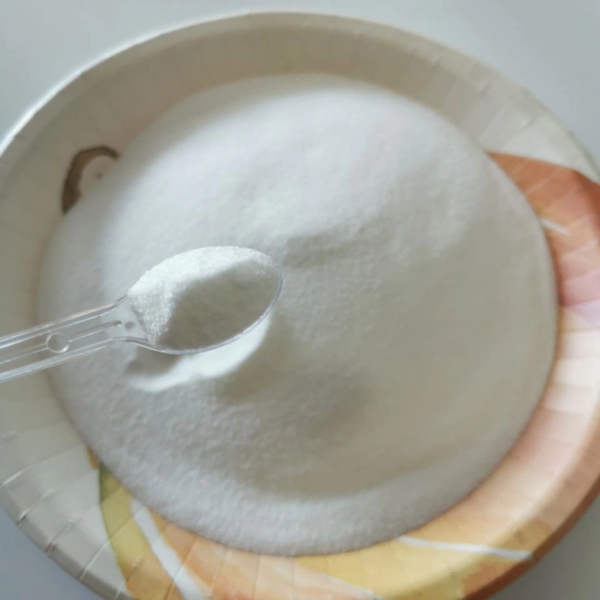Views: 222 Author: Sara Publish Time: 2025-10-21 Origin: Site








Content Menu
● Japan's Isomaltulose Market Overview
● Leading Isomaltulose Manufacturers in Japan
● Product Range and Applications
● Market Trends and Growth Drivers
● Geographic and Distribution Insights
● Sustainability and Innovation Focus
● FAQ
>> 1. What is the current size and growth forecast for the Japan isomaltulose market?
>> 2. Who are the top isomaltulose manufacturers in Japan?
>> 3. What are the primary applications of isomaltulose in Japan?
>> 4. Why is isomaltulose preferred over other sweeteners?
>> 5. What opportunities exist for overseas manufacturers in Japan?
Isomaltulose Manufacturers and Suppliers in Japan play a pivotal role in the expanding market for low-glycemic, functional sweeteners tailored to health-conscious consumers. This article provides an in-depth overview of leading manufacturers, market dynamics, product applications, and growth opportunities in Japan's isomaltulose sector. It is designed to benefit food, beverage, and healthcare companies seeking reliable partners for mixed sweetener development, tablet manufacturing, and OEM/ODM services.

Isomaltulose is a naturally occurring disaccharide derived enzymatically from sucrose. It features a low glycemic index and provides a sustained energy release, making it an ideal sweetener alternative for health-focused products. This sugar substitute is particularly popular in functional foods, sports nutrition, confectionery, and dental products due to its minimal impact on blood sugar levels and its tooth-friendly nature.
The Japan isomaltulose market was valued at approximately USD 40 million in 2024 and is projected to reach about USD 90 million by 2033, growing at a compound annual growth rate (CAGR) of 10.2%. This growth is driven by increasing consumer awareness of low glycemic and functional sweeteners, government regulatory support for health-oriented foods, and the country's aging population seeking cognitive and endurance benefits.
Japan's market is concentrated in major urban centers such as Tokyo, Osaka, and Nagoya but also extends to emerging regional hubs. Factors such as shifting dietary habits, technological innovation, and a rising preference for sustainable products strongly influence this market.
Prominent manufacturers play a crucial role in driving innovation, production quality, and sustainability in the isomaltulose market in Japan:
- Matsutani Chemical Industry Co., Ltd. is recognized for high-quality carbohydrate products including isomaltulose, supplying to food, beverage, and pharmaceutical sectors. Their focus on R&D enables the development of advanced functional ingredients catering to health-conscious markets.
- Wako Pure Chemical Industries, Ltd. dominates the Japanese isomalt market with an 18-22% market share. Their reputation is built on product purity, innovation, and a strong distribution network.
- FUJIFILM Wako holds 15-18% market share with special attention to technological innovation and strict quality assurance, making them a preferred supplier for precision-driven industries.
Other notable manufacturers impacting the market include Borger, ErgoNutrition, Beneo, Frusano, Gerfro, Benenovo, Cargill, and regional players like Akhil Healthcare Pvt Ltd and SINO Food Ingredients (SINOFI), which also emphasize environmentally sustainable production.

Japanese manufacturers produce isomaltulose predominantly for the following applications:
- Health Drinks and Sports Nutrition: Products designed for sustained energy release suited for athletes and active individuals.
- Functional Confectionery: Sugar-free and low-sugar sweets that maintain flavor but reduce glycemic impact.
- Dental Health Products: Offering non-cariogenic properties, isomaltulose helps prevent tooth decay.
- Nutraceuticals and Dietary Supplements: Targeting metabolic health and age-related cognitive support.
Isomaltulose withstands extreme heat and maintains formulation stability, making it a versatile ingredient across many product categories.
Several key trends and factors are fueling the dynamic growth of the Japan isomaltulose market:
- Consumer Health Awareness: Increasing desire for low-calorie and low-glycemic products to combat obesity, diabetes, and other lifestyle diseases.
- Regulatory Support: Japan's supportive framework for health-oriented functional foods encourages manufacturers to innovate.
- Digital and Technological Integration: Adoption of AI, automation, and sustainability initiatives in manufacturing processes.
- Clean Label and Plant-Based Demand: Growing preference for natural, transparent ingredients and eco-friendly products.
- Demographic Shifts: Aging population driving demand for products enhancing cognitive function and endurance.
- Cross-Border Collaborations: Partnerships with international ingredient suppliers and technology firms bolster innovation.
The Japanese isomaltulose market extends throughout major regions like Hokkaido, Kanto, Kansai, Chubu, and Kyushu. Urban populations in Tokyo and Osaka heavily influence demand due to higher health awareness and purchasing power, while emerging regions represent growth opportunities due to evolving consumer diets.
Strong distribution networks and well-established supply chains enable manufacturers to efficiently serve domestic demand and support OEM/ODM services for international clients.
Manufacturers in Japan are increasing efforts towards sustainable production methods, including renewable raw materials, waste reduction, and eco-friendly packaging. Continuous investments in R&D help these companies offer innovative sweeteners that maintain taste, functionality, and health benefits while adhering to environmental standards.
Japan's isomaltulose market is poised for robust growth, fueled by rising health consciousness, technological advances, and regulatory encouragement. Leading manufacturers such as Matsutani Chemical Industry, Wako Pure Chemical Industries, and FUJIFILM Wako exemplify industry leadership through quality, innovation, and sustainable practices. For overseas manufacturers seeking blended sweetener development, tablet production, or OEM/ODM partnerships, Japan offers a strategic and technologically advanced landscape that aligns with global health and sustainability trends.

The market was valued at approximately USD 40 million in 2024, expected to grow to USD 90 million by 2033, with a CAGR of 10.2%.[2][3]
Leading manufacturers include Matsutani Chemical Industry, Wako Pure Chemical Industries, FUJIFILM Wako, Borger, ErgoNutrition, Beneo, Frusano, Gerfro, and Cargill.[3][2]
Isomaltulose is used in health drinks, sports nutrition, sugar-free confectionery, dental care products, and nutraceuticals targeting metabolic and cognitive health.[2][3]
It has a low glycemic index, provides sustained energy release, is tooth-friendly, non-cariogenic, and suitable for diabetics and health-conscious consumers.[3][2]
Opportunities include co-development of blended sweeteners, contract manufacturing, OEM/ODM collaborations, and technological partnerships focused on health and eco-friendly solutions.[2][3]
[1](https://www.futuremarketinsights.com/reports/isomaltulose-market)
[2](https://www.futuremarketinsights.com/reports/isomalt-industry-analysis-in-japan)
[3](https://www.linkedin.com/pulse/japan-isomaltulose-market-2026-trends-size-key-players-5heme)
[4](https://www.6wresearch.com/industry-report/japan-isomaltulose-palatinose-products-market)
[5](https://www.databridgemarketresearch.com/reports/global-isomaltulose-market)
[6](https://www.maximizemarketresearch.com/market-report/global-isomaltulose-market/105238/)
[7](https://www.marketresearch.com/VPA-Research-v4245/Isomaltulose-Size-Share-Outlook-Grade-42399484/)
[8](https://www.mordorintelligence.com/industry-reports/isomalt-market)
[9](https://dataintelo.com/report/isomaltulose-market)
